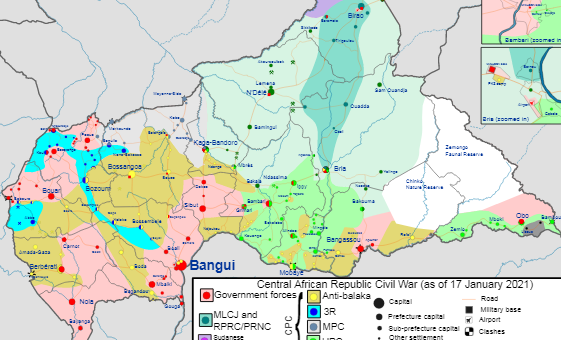In the shadow of six surrounding neighbors burdened with their own problems sits the Central African Republic, a landlocked country that gets relatively little attention but that has been plagued by instability and conflict upending the lives of its citizens for many years, The New York Times reported.
The Central African Republic is once again enduring an acute bout of instability from an on-again, off-again civil war that has displaced hundreds of thousands of people. Despite the intervention of United Nations peacekeepers, Russian military advisers and Rwandan troops, peace is still elusive.
Almost one-third of all Central Africans have been displaced from their homes in recent years — including 200,000 who fled just since December, after a troubled election.
The latest turbulence can be traced to elections on Dec. 27, which rebel groups tried to disrupt. The incumbent, President Faustin-Archange Touadéra, won a second term, as rebels staged attacks and occupied major towns. Few people outside the capital, Bangui, could safely vote because of rebel violence, and the rebels even reached Bangui. The president’s opponents have accused him of fraud.
The rebels are an unlikely marriage of the remnants of two broader and formerly antagonistic armed groups: the Seleka, which means alliance and is a coalition of majority Muslim fighters from the north, along with some Chadian and Sudanese; and mostly Christian vigilante militias that call themselves anti-balaka, which sometimes translates as anti-machete. Both groups have been accused of committing atrocities against civilians, including rape and mass murder.
The precise reasons are unclear. But they have combined in an alliance called the Coalition of Patriots for Change. And they are believed to have the support of a former president, François Bozizé. He seized power in a 2003 coup and was deposed by the Seleka in 2013. Disqualified from running in the December elections, he is believed to be in hiding and faces U.N. sanctions for his support of anti-balaka groups.
